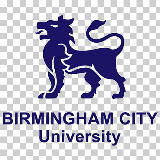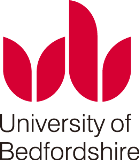






Study in UK
GDP
$ 3.12 Trillion (5th)
Population
67.61 million
Language
English
Capital
London
Currency
Pound £
Temperature
-0.6° C to 30° C
- Why Study in UK
- Accommodation
- Student Visa Process
- Post Admission
- Top Universities
- Top Courses
- FAQ
Why Study in UK
- Widest range of courses catering to more than 25 educational streams
- 2-year visa provided post-study for employment
- Work for up to 20 hours per week in part-time while you pursue a full-time degree-level course or even a short-term program
- Free healthcare facility for international students if they join for more than 6 months plus duration course
- Post completion of the course, big opportunities to work with top-notch companies such as Deloitte, Ernst & Young, KPMG, PWC, Boots, etc.

The courses in the UK are affordable with reasonable tuition fees that do not burden the students. Besides, there are a large number of scholarship programs in the UK that work as a blessing for many international students. There are scholarships for Indian students to study in UK that serve as a great support to build a bright career ahead. The United Kingdom has an exclusive demographic history with many families having their roots from various parts of the world, and yet residing in the country with equality, peace, and harmony. With a unique mix of food, culture, and interests, UK is considered to give congenial and convenient student lifestyles. You move to any part of the country, there exists an assorted mix of restaurants, shops, sports activities, culture, and nightlife that will keep you livelier and engaging. The people of UK have a special liking towards arts, music, shopping, and bars.
Accommodation Costs For Studying in UK (Cost of living expenses)
| Cost of Living Items | Cost (GBP) Per month |
| Accommodation Cost | 500-2000 |
| Clothing | 30-100 |
| Food expenditure | 300-500 |
| Transportation | 50-100 |
| Personal Care | 20-40 |
| Entertainment | 10-50 |
| Connectivity (Data usage) | 10-200 |
| Stationery and Insurance | 20-60 |
Student Visa Process For United Kingdom
If you are planning to apply for a short course to study in UK and are around 18 years old, you are eligible for a short-term study visa. Valid up to six months for short courses with an extension limit of up to 11 months for English language courses.
For a longer course duration, you need to ensure that your chosen university or institution holds a Tier 4 Sponsor License. In that way, you need to apply for a Tier 4 (Child) student visa with the age of 4-17 years or a Tier 4 (General) student visa with an age of 16+.
United Kingdom Student Visa Process
The below steps are needed to be followed to get your UK student visa if you decide to study in the United Kingdom
1. Get an acceptance letter from Recognized UK University
Apply for a visa once you receive an acceptance letter from a University in the UK2. Take an appointment with your local consulate
Make your application in person from your nearest Indian embassy or consulate. If possible, book an appointment online3. Finish your application and provide documents
While you attend your visa appointment you must complete and sign a visa application, submit it with the necessary documents (as listed below)4. Wait for the decision
The visa application process can take between 4 to 8 weeks or more in case of applying for UK visa. You can track the progress of your application on the Irish visa office/embassy/consulate5. Apply for the residence permit
Soon after you arrive in UK, you will need to apply for a residence permit within one month.
Attend Your Visa Appointment
During your appointment at the UK consulate or embassy, you will need to attend a short interview with a consular officer and explain why do you want to study in UK. They will interrogate you with few questions on your plans and your reasons for your trip to India.
Documents Required for Student Visa In UK
- Details of your passport
- A recent photograph
- An unconditional offer of a place on a course offered by a licensed Tier 4 Sponsor, evidenced by a ‘Confirmation of Acceptance for Studies (CAS) form from your course provider (worth 30 points)
- Proof of adequate English language skills demonstrated bypassing one of the secure English language tests (SELT). You will not need to provide this if you’re from an English-speaking country such as the United States or have completed a qualification equivalent to a UK degree in an English-speaking country.
- Proof you have financial support throughout your stay in the UK (worth 10 points)
- If you’re a non-EU/EEA/Swiss student studying a sensitive subject, you may also need an ATAS certificate
You can get information on the UK student visa checklist here
Work Opportunities (Post Admission)
All the international students who study in UK can avail great career opportunities to stay and work post-completion of their studies. However, certain terms and conditions apply to the students by the Home Office. Recently, the UK Government has declared a new immigration route for international students who plan to stay back in UK after study in UK. The Graduate Immigration Route permits the students to stay and work for 2 years in UK post-graduation. Some of the key information that you must know before you look forward to staying back and find some work are:
- New Immigration laws are launched for 2021 for all those who want to study in UK. Students who graduate from UK university in summer 2021 or after can apply for this route
- Students need to finish up their undergraduate or above level studies at a UK higher education provider with a sound track record
- Should hold a valid Tier 4 Visa for this immigration route
- While applying for this immigration route, the Immigration Health Surcharge and Visa Fee is applicable
- Successful applicants can stay back and work in UK based on their level of skillsets for up to two years
Top Universities




















Top Courses
Before selecting your destination country, it is also important to research the top courses sought by international students in those countries. This is a really good indicator to understand why students might choose to study certain courses in specific destinations. The main factors driving the favorable course choices for a study destination are the location, economy (GDP) and predominantly emerging job markets in that study destination. ApplyRobin with its years of experience and dealing with students from around the world, has already listed the most preferred courses in the UK.
FAQs
1. How much does it cost to study in UK?
| No | Study PRogram | Average Fees (GBP) Yearly |
| 1 | Undergraduate Bachelor Degree | 10000-20000 |
| 2 | Postgraduate Masters Degree | 10000-20000 |
| 3 | Doctoral Degree | 15000-24000 |
2. Can international students work in UK?
All the international students who study in UK can avail great career opportunities to stay and work post-completion of their studies. However, certain terms and conditions apply to the students by the Home Office. Recently, the UK Government has declared a new immigration route for international students who plan to stay back in UK after completing their studies. The Graduate Immigration Route permits the students to stay and work for 2 years in UK post-graduation. Some of the key information that you must know before you look forward to staying back and find some work are:
- New Immigration laws are launched for 2021. Students who graduate from UK university in summer 2021 or after can apply for this route
- Students need to finish up their undergraduate or above level studies at a UK higher education provider with a sound track record
- Should hold a valid Tier 4 Visa for this immigration route
- While applying for this immigration route, the Immigration Health Surcharge and Visa Fee is applicable
- Successful applicants can stay back and work in UK based on their level of skillsets for up to two years
3. How much can an international student earn in UK?
4. Can a student get a PR/Work Permit after study in UK?
5. Can a student stay/settle in UK after study?
After Brexit, in March 2019, an announcement was done that foreign undergraduates and master’s students are permitted to stay up to six months after they completion of their study in UK. The doctoral students are allowed to stay up to 1 year after completing their degree. Once they receive their degree, they can apply for a Tier-2 visa that will allow them to work permanently in the UK. This PR is valid up to 5 years and 14 days. Once this period is completed, you can apply for permanent residency in UK.
6. Can I apply to UK without IELTS/TOEFL & SAT/GRE/GMAT?
| Institution | IELTS Requirement (Bachelors) | IELTS Requirement (Masters) | PTE Requirements |
| University of Oxford | 7.0 | 7.0 | N/A |
| University of Cambridge | 7.0 | 7.0 | N/A |
| Imperial College London | 6.0 | 6.0 | 62-69 |
| University College London | 5.5 | 5.5 | 62/75 |
| London School of Economics and Political Science | 7.0 | 7.0 | 69 |
| University of Edinburgh | 6.5 | 6.5 | N/A |
| King’s College London | 6.0 | 6.0 | N/A |
| University of Manchester | 5.5 | 5.5 | 43-74 |
| University of Glasgow | 6.5 | 6.5 | 68 |
| University of Warwick | 5.5 | 5.5 | 62 |
| Durham University | 6.5 | 6.5 | 62 |
| University of Bristol | 6.0 | 6.0 | 60/64 |
7. What are the required documents to apply for admission to the UK?
You can use the below checklist just to ensure that all your supporting documents are available to make the most of your appointment and the application.
Undergraduate
- Copy of passport/visa (if available)
- Academic transcript
- Certificate of graduation
- Certificate of English proficiency – IELTS/TOEFL/PTE Test/Other
- Personal statement
- Reference letters
- CV (if applicable)
Postgraduate
- Certificate of graduation/bachelor’s degree
Ph.D./Research
- Certificate of graduation/master’s degree
- Research proposal
Previous UK Education History
- Previous CAS letter
- Confirmation of enrolment
- Previous visas (Visa stamp and biometric card)
Personal Statement
A personal statement is required when applying to UK universities. In it, students are tasked with writing about what they hope to do on the course, what they hope to do after the course, and why they are applying.
8. What is the process of Applyrobin?
Apply Robin provides a smooth and seamless student visa service. We have made the whole process hassle-free with exclusive student services. From application to departure at your desired study location, we make the students’ experience easy and memorable. Take a look at the below process:
- Student Counselling For University Selection
- Application Form Filling
- Documentation Support
- Follow-up With the University
- Making Payment to the University
- Get the Final Acceptance Letter
- Visa-Support
- Post Visa – Pre Departure Assistance
9. How do I get my student visa for UK?
1. Get an acceptance letter from Recognized UK University
Apply for a visa once you receive an acceptance letter from a University in UK2. Take an appointment with your local consulate
Make your application in person from your nearest Indian embassy or consulate. If possible, book an appointment online3. Finish your application and provide documents
While you attend your visa appointment you must complete and sign a visa application, submit it with the necessary documents (as listed below)4. Wait for the decision
The visa application process can take between 4 to 8 weeks or more in case of applying for UK visa. You can track the progress of your application on the Irish visa office/embassy/consulate5. Apply for the residence permit
Soon after you arrive in UK, you will need to apply for a residence permit within one month10. How much monthly budget should a student expect in UK?
In case if you are studying outside London, you would need a minimum amount of GBP 1015 per month. Besides, the average cost of living for staying and studying in any part of the country per month can be as per the below table:
| Cost of Living Items | Cost (GBP) Per month |
| Accommodation Cost | 500-2000 |
| Clothing | 30-100 |
| Food expenditure | 300-500 |
| Transportation | 50-100 |
| Personal Care | 20-40 |
| Entertainment | 10-50 |
| Connectivity (Data usage) | 10-200 |
| Stationery and Insurance | 20-60 |
Admission Timeline/Admission Process to Study in UK
Application Start Dates
Applications for the majority of courses open in months of September/October in the year before the course starts. For eg, for 2021 Sept/Oct intake, applications begin in September 2020.Application Start
Dates
Submission of Application
The application submission deadlines may differ for bachelor and master applications depending on university and course of study. The dates typically range from October-January.Submission of
Application
Admission Results
Applicants generally receive admissions results during Jan/Feb. Admission decisions may sometimes be delayed to March depending upon the number of applicants for a specific course for Study in the UK.Admission Results
Apply for Visa
The visa processing time for a student visa for study in the UK is not extensive. It is best for applicants to have their VISA ready during May/June to prevent any last-minute problems or delayed visa. Click for Visa checklistApply for Visa
Academic session begins
The academic session for most universities in the UK starts either Sept/Oct. However, there are other intakes offered also by UK universities.Academic session
begins
Latest from our blogs


